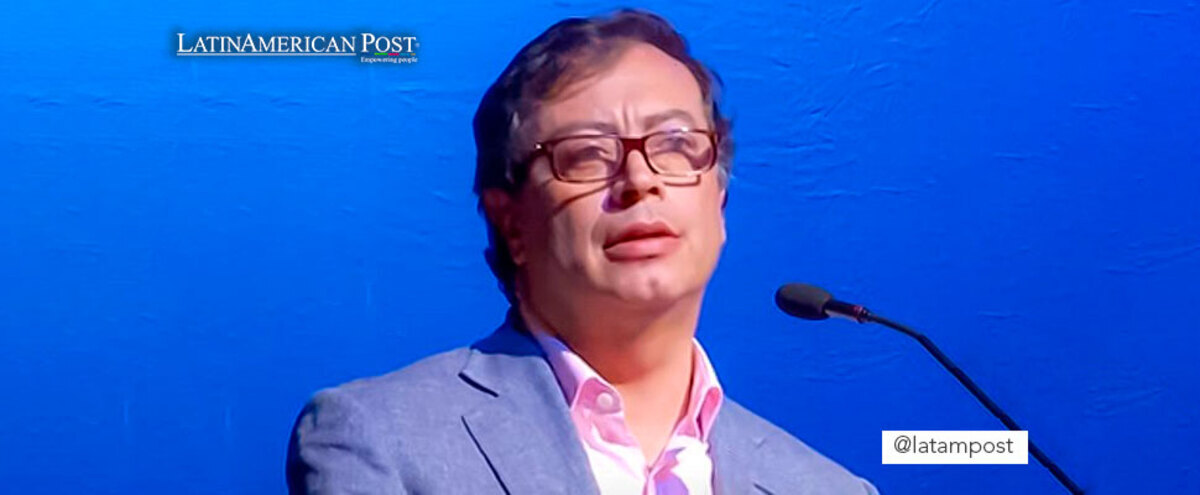The Minister of Mines and Energy of Colombia, Irene Vélez, was the target of criticism and memes for proposing the degrowth theory. But what is it really about?

Photo: YT-CLACSOtv
LatinAmerican Post | Santiago Gómez Hernández
Listen to this article
Leer en español: ¿Qué es la teoría del decrecimiento? La propuesta de desarollo de Gustavo Petro
A few days ago, the proposal of the new Minister of Mines and Energy, Irene Vélez, to promote and support the theory of degrowth at a global level made headlines in Colombia. The simple idea is that countries, especially economic powers, decide to slow down their growth, was criticized and ridiculed, but how serious or true is what the minister recommends?
The premise of degrowth is to understand that there is a global ecological deficit and that this is evidenced in prolonged droughts, deforestation, soil erosion, loss of biodiversity, destruction of habitats, climate change and depletion of the planet, as Alejandro Martín explains in the OVACEN page . As shown by the World Wildlife Forum (WWF), with data from 2017, humanity consumes resources as if we had 1.7 planets at our disposal. This figure could be higher in 2022. This is why a new theory is born that tries to reach an agreement between economic growth and environmental balance.
Degrowth theory
This theory is known as "Degrowth" in English, and aims to install an economic and social model different from the current capitalist and growth model. Despite what some may think, this a widely discussed theory, and today it is postulated as one of the most important rivals as a more respected economic model of development worldwide.
According to the World Economic Forum (WEF), the term degrowth began to be used by the French and Austrian philosopher André Gorz in 1972, but it was not until the 2000s that it began to be seen as a movement. Today it has relevant academics such as the French economist Serge Latouche, Jason Hickel and Kate Raworth.
This idea is based on environmentalism and sustainable growth, recognizing the impossibility of unlimited linear growth on a planet with limited resources . This is where economists suggest this plan as a method to save ecosystems.
This model poses a simple premise: “the only way to save the planet is to radically limit the global consumption of resources”. The idea is that the richest economies begin to decrease their consumption of resources and energy decreases steadily.
How is the degrowth of industrialized countries achieved?
Obviously, the most important question is how to adopt this growth model. As the EconomicsHelp website explains, “practical degrowth actions can include buying fewer things, growing your own food, and using empty houses instead of building new ones .” They would be, initially, small activities that reduce the consumption of resources.
Although Latouche makes 8 proposals involving civil society, such as political and economic changes:
- Revalue. Change the values of society and move from consumerism to cooperation.
- Reconceptualize. Change the style and quality of life to be able to live better with less.
- Restructure: Combine eco-efficiency and voluntary simplicity.
- Relocate: Promote local self-sufficiency to meet needs by reducing transportation consumption.
- Redistribute: Regarding the distribution of wealth.
- Reduce: Reduce consumption.
- Reuse: Extend the life of products.
- Recycle: Avoid consumption and waste.
Something crucial about this theory is that it gives the global north and the industrialized countries the greatest responsibility for starting degrowth. Ultimately, it seeks a balance between the historically poor countries and the rich ones, in order to maintain a decent lifestyle balanced with the environment.
But, despite its similarities, the theory of degrowth should not be understood with the theory of sustainable development. The latter aims for countries to achieve a model of consumption and development similar to the one that Western countries have today. While the theory of degrowth aims to find a point at which consumption falls. That the balance is found in less consumption and "development" than that of Western countries.
Is it possible to implement this growth model?
The main doubt about this economic model is its feasibility, since it requires a global consensus. However, the word degrowth is more frightening than is actually required. As explained by Jason Hickel, a professor at the University of London, in his article “What does growth mean? A few points of clarification”, degrowth is not to reduce Gross Domestic Product, but rather to “reduce energy and resource performance”.
Clearly, the task will not be easy. Less when you have to coordinate and commit powers like China, the United States, Europe and Russia to change the lifestyles of its inhabitants.





